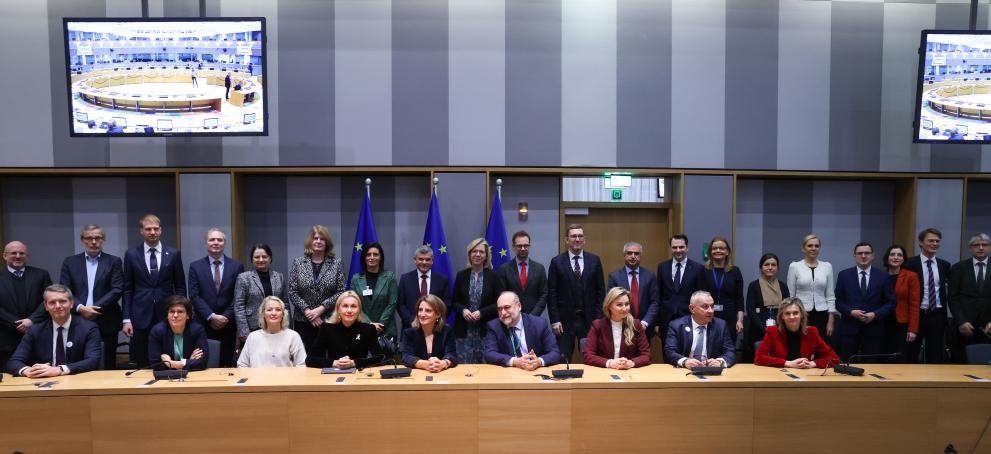Bulgaria joined the Political Declaration on Energy Efficiency Financing and the European Energy Efficiency Financing Coalition
This happened within the EU Transport, Telecommunications and Energy Council in Brussels
A joint Declaration on Energy Efficiency Financing and the European Energy Efficiency Financing Coalition was signed today by EU Commissioner for Energy Kadri Simson and the Energy Ministers of all 27 EU Member States within the Transport, Telecommunications and Energy Council in Brussels.
The Declaration underlines the importance of attracting private investment in energy efficiency and of creating a long-term, viable framework for financing investments in energy efficiency.
The signing of the Declaration is also the first step towards establishing a coalition that creates a form of trilateral cooperation between the EC, Member States and financial institutions. Its aim is to create a favourable market environment for energy efficiency investments and to increase the private financing necessary to contribute to the achievement of the European Union's 2030 and 2050 energy and climate objectives.
Energy ministers discussed and adopted proposals to amend three European regulations: on reinforcing solidarity through better coordination of gas purchases, reliable price benchmarks and reliable cross-border gas exchanges, on defining a framework to accelerate the deployment of renewable energy, and on establishing a market adjustment mechanism to protect Union citizens and the economy from excessive prices.
Energy Minister Rumen Radev commented that Bulgaria supports reaching a political agreement on the proposed extension of the exceptional regulations adopted last year, allowing economic measures to take place in the event of serious energy supply difficulties in the EU.
“We view in a positive way the possibility of activating the emergency mechanism to mitigate the impact on energy prices and jointly purchase natural gas, taking into account the still fragile geopolitical situation”, Minister Radev pointed out. “Regarding the solidarity regulation, we stress that the joint purchasing mechanism designed as a voluntary and support mechanism should not become mandatory without a detailed impact assessment at EU level,” he added.
As regards the Market Adjustment Mechanism Regulation, the Minister underlined that our country recognizes that it is appropriate to have a market adjustment tool at record gas prices in case TTF prices pass the trigger thresholds of EU virtual trading points, with a view to ensuring security of supply and supporting consumers within the EU.
Bulgaria also supports the changes to the Regulation on authorisation procedures: “Simplifying and streamlining administrative procedures is a key element in implementing the policy of accelerating the development of renewable energy,” Minister Radev highlighted. He added that Bulgaria supports the proposed measures relating to the improvement and expansion of the network infrastructure necessary for the effective integration of renewable energy sources into the energy system, which should be carried out at the same pace as RES installation and production projects within the framework of the regulation, as well as the proposals for projects of common interest.
Speaking to the media in Brussels, Minister Radev commented that there was a meeting of European energy ministers from the so-called “nuclear alliance” countries. A text has been adopted insisting on a neutral technological approach in the future provision of European funding for the development of energy capacities when they do not lead to high pollution. During the meeting, Bulgaria also expressed its support for the non-binding Wind Charter Initiative and will join it once national approval procedures have been completed.
The text of the Declaration can be found at the following Internet address.

